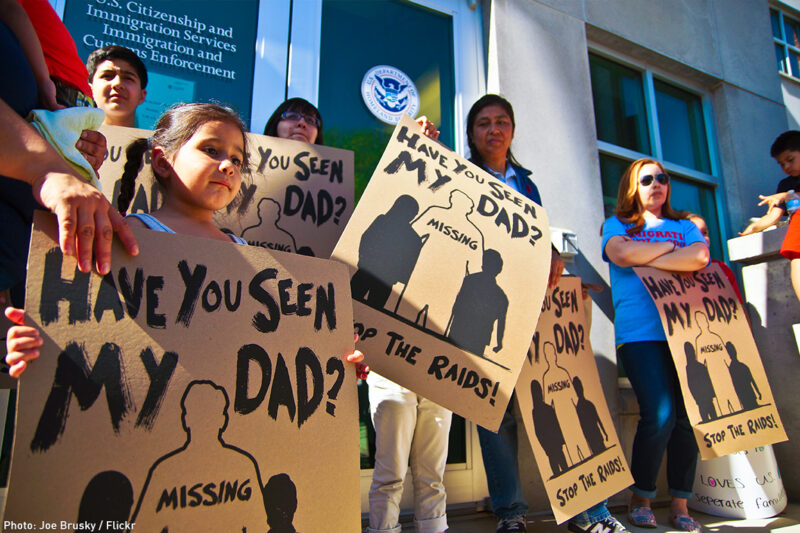Local Leaders Should Know the Constitutional and Public Safety Risks of Joining TrumpÔÇÖs Deportation Force


You may have heard how Trump is trying to into becoming part of his deportation force.
ACLU affiliates across the country are fighting back.
Right now, weÔÇÖre sending letters to law enforcement and other local leaders in a dozen states across the countryÔÇöin Alaska, , Florida, Hawaii, Idaho, Maine, Minnesota, Ohio, South Carolina, , , and Virginia to explain how being part of TrumpÔÇÖs deportation force creates risks for them and their communities.
As weÔÇÖve explained in the past, Immigration and Customs Enforcement officials often ask local law enforcement agencies to keep people in jail for them so they can initiate deportation proceedings. Because ICE does not seek a judicial determination of probable cause, these requests put local police in the position of holding people in jail without the legal authority to do so, which violates their constitutional rights.
On Friday, to how it asks local police to hold people in their custody. The ÔÇťnewÔÇŁ forms ICE released are largely more of the same, except that they make clear that the Trump administration has abandoned the Obama administrationÔÇÖs deportation priorities ÔÇö or, in effect, any priorities at all. One change ICE has introduced is that it will issue alongside it detainer requests.
While this change was undertaken to try to address making clear that ICE has been in violation of federal law on a massive scale, the introduction of these ÔÇťwarrantsÔÇŁ does nothing to address the constitutional flaws. ICE warrants are little more than a second piece of paper signed by an ICE agent ÔÇö not, like familiar criminal warrants, signed by a judge. ICE is sending them to local police to give them a false sense of security and paper over the flaws in the detainer system, but they donÔÇÖt offer local police any legal authority to hold someone.
We also urge local police not to join the notorious 287(g) program, which allows ICE to deputize local police officers as immigration agents. In the past, 287(g) has been used as a dangerous tool, enabling rogue departments or officers to racially profile their residents. Arizona Sheriff Joe Arpaio of Maricopa County, who was recently voted out of office for being anti-immigrant and is currently facing charges of criminal contempt, had a 287(g) program before the federal government , citing ArpaioÔÇÖs discriminatory policing practices. Another sheriff with a 287(g) program in Alamance County, North Carolina, was prosecuted by the Department of Justice for . The investigation found that an Alamance captain emailed a video game to his employees in which players crossing the border.
Several states are also trying to enact so-called ÔÇťÔÇŁ legislation that would actually require that local police, in various ways, help the Trump administration try to deport every single immigrant it can. This is another bad move that could place communities in a bind where they have to do something that violates peopleÔÇÖs rights. Newell Normand, the sheriff of Jefferson Parish, Louisiana, used to describe an ÔÇťanti-sanctuary billÔÇŁ introduced in his state last year.
Local leaders should know about the risks TrumpÔÇÖs deportation force poses to their residents and their rights. Most want to do whatÔÇÖs right. The ACLU is here to help communities enact good policy that protects all people. Drawing a clear line between immigration and policing advances constitutional rights, public safety, and solidarity.
TrumpÔÇÖs deportation force will harm community relations, costs lots of money, and distract from local priorities. You can , too, by urging your local elected officials to protect the rights of all residents. Check out our to see where many activists are fighting already.

